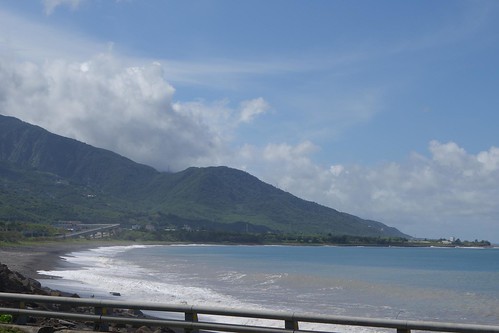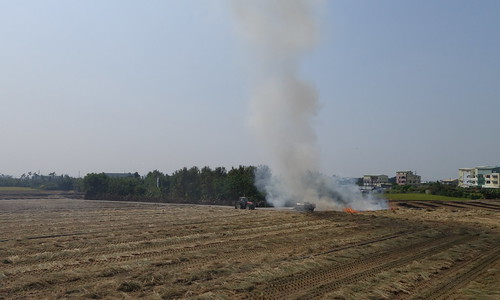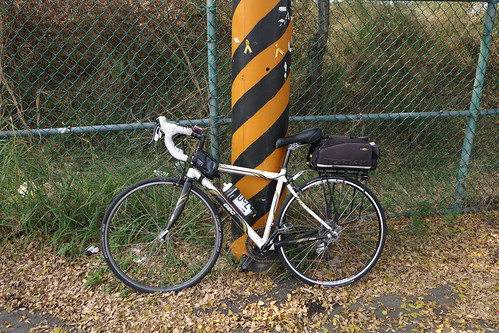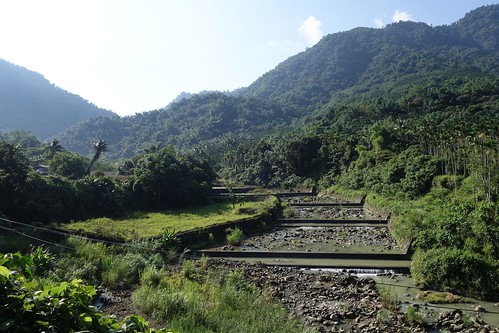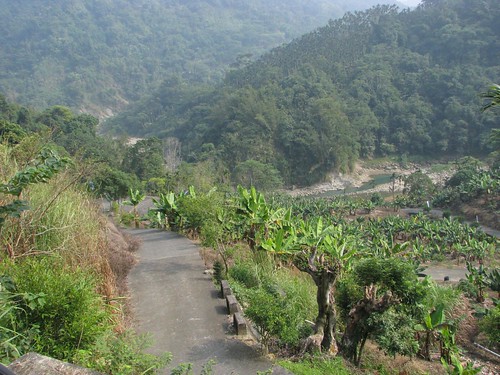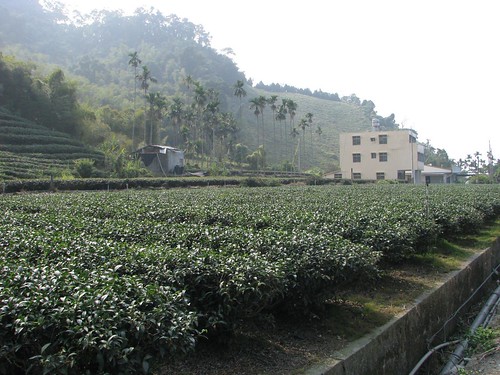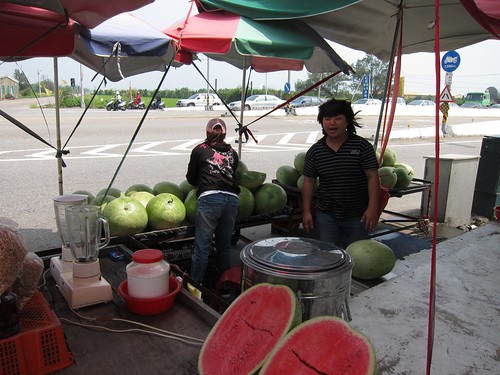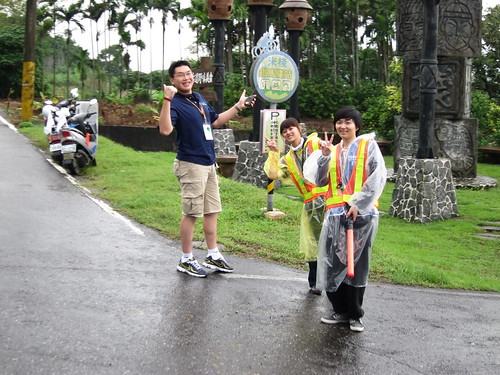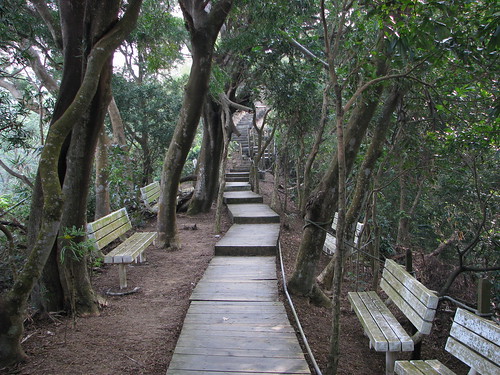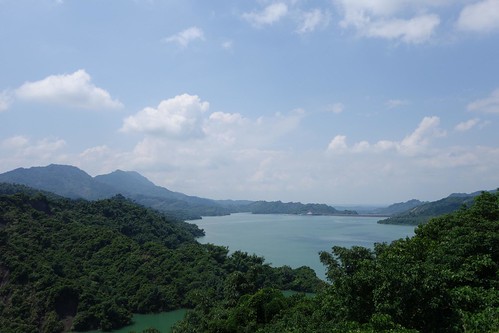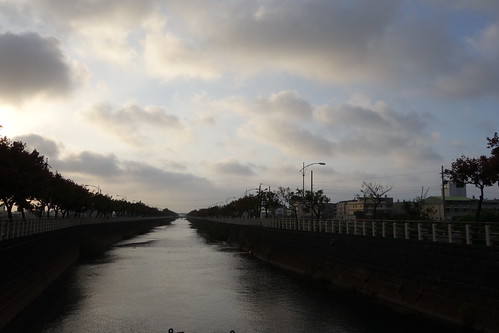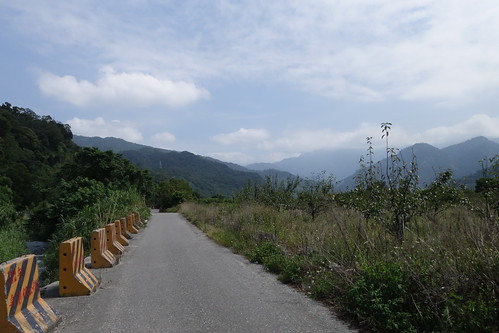This is why you should avoid Jiufen on the weekends.
Over at VOA Ralph Jennings handed in
a piece which simply forwarded the ruling party's framework of neoliberal propaganda in which it has embedded its sellout trade agreements with China, to make them more palatable, rather like the poisoned cannoli from the
Godfather III. This one generated a mix of anger and laughter among those of us who have observed Taiwan long. The piece, which discussed entrepreneurship among the young but interviewed no young entrepreneurs, was dismissed by a friend of mine who is an actual young Taiwanese entrepreneur with his fingers in several businesses in the best Taiwan style, as "naive". Let's take a closer look...
In mid-October, Taiwan’s No. 2 negotiator to China warned that Taiwanese lacked aggressiveness and an enterprising spirit. He cautioned against being a “sheep” in the face of fast-growing China, Taiwan’s political and military rival of 65 years. The seldom heard social critique by a public official points to growing awareness in Taiwan that today’s youth prefer safe jobs to the risky business ventures of their elders and modern mainland Chinese.
Alarm bells should be going off when the writer is citing a government political heavyweight, not an academic with years of study in the field, or numbers from credible statistics organizations, or any actual entrepreneurs. This China negotiator is a KMT-appointed individual with a vested interest in blaming Taiwan's economic problems on its young and not on the structural features of the economy that the KMT is busy creating via its trade agreements with China, its 1% friendly tax policies, its torpid, toxic inaction in the legislature it controls, and its generally colonial view of Taiwan's economy. Critical context or perspective is thus lacking from the get-go.
Moreover, since the services trade agreement with China is aimed at (destroying) the kind of small businesses that many local entrepreneurs want to open, you can see how
the person who is negotiating these agreements is laying the ground for explaining their future failure. What? Taiwanese couldn't adjust to the new open market? Must be because the current generation is lacking in entrepreneurship, not because it is a crapshit agreement that has only minority public support which will fail like its predecessor, ECFA. The explanation comes ready-made! You can be sure that this is just a trial balloon for the usual KMT/neoliberal practice of blaming the victims for their own suffering.
Moral: when explanatory regimes are moral judgments, they generally reify some arrangement of power in society...
Jennings goes on to describe...
When Taiwan was poor, dependent on farming and fishing until industrial development in the 1960s, people with business acumen would get ahead by founding companies. The trend gave rise to companies such as Evergreen Marine, the world’s No. 4 container shipper, and Wang Yung-ching, billionaire founder of the petrochemical giant Formosa Plastics Group.
This is a commonplace view of history-as-moral-theatre. You hear it from old people in every nation grousing about the younger generation in quotes that go back to the ancient Greeks: "When I was a boy we opened three businesses every morning. But these young people! Pah!". No doubt the first
H. habilis complained about the first
H. sapiens generation that way. But the truth is more complicated, of course...
Wang Yung-ching of Formosa Plastics fame was a US aid baby, selected in a program for Taiwanese entrepreneurs and given a massive US loan to start Formosa Plastics in 1954, as part of a general pushback of US aid officials against the KMT government's urge to suppress local capitalism (see Jacoby's
US Aid to Taiwan) and as part of an even bigger push by the US to position Taiwan as capitalist Free China as opposed to Communist China. That framework of aid and stimulus, along with the vast US middle class that enabled the early Taiwanese entrepreneurial class is long gone. Wang had been picked because he had already been running a lumber company... takes money to make money. Today Formosa Plastics makes the big bucks in plastics (massive government direct and indirect subsidies for raw materials, water, electricity, and labor) and hospitals (nationalized and heavily subsidized), among others. At that level, "entrepreneurship" comes full circle, farming again, but government subsidies, not the earth.
Can't help mentioning that the reason Taiwan was poor in the 1950s was that it had been comprehensively looted by the KMT in the immediate postwar period, which then dumped a zillion party apparatchiks and soldiers on the island in 1949. This meant that per capita incomes wouldn't return to their 1937-8 levels until the mid-1960s (see Mendel's
The Politics of Formosan Nationalism). The Taiwanese in the early stages of the economic miracle were merely trying to get back to the prosperity they had known under the Japanese.
Finally, at the bottom of the article, Jennings cites a couple of people who make ostensibly reality-based claims, people who went to work for large corporate organizations or the government... you know, the kind of risk averse young person they are criticizing...
Fear of risk also shows in Taiwan’s prized high-tech industry, where the supply of venture capital exceeds demand. Jay Yang, a deputy director with the government-backed Market Intelligence and Consulting Institute in Taipei, said younger people fear the costs of starting a business.
He said younger Taiwanese are not bad at innovation but that there are fewer young people interested in becoming entrepreneurs due to the risks they must take, so most people work for large IT companies. Yang called this a cultural problem, and said that people are conservative. He said starting a company could take years and pointed out that one does not know in the beginning how long it will take to make money.
Yang’s consultancy found Taiwanese high-tech inventors were more entrepreneurial when Internet use was growing globally around 2000 but saw a pullback as industry competition intensified.
Note that the article simply obscures what the "risks they must take" are: the limping domestic economy, the high price of land and buildings, which the government has done little to alleviate, and so on. To discuss the overall political economy, rather than simply repeat moral platitudes, would have required criticizing the policies of the party of the China negotiator cited in the opening and its unremitting support for big moneyed interests. It should also be noted that the finance and consulting industry from which Jennings draws these two anecdotes is also tightly linked to the ruling party program of opening Taiwan to plunder from China. Hence it also has a vested interest in blaming the young ("it's a cultural problem") rather than discussing the political economy of the island, the role the finance industry plays in plundering the island of its development capital, and its effect on risk-taking by the young. These are not disinterested third parties commenting here.
Just for fun, I looked up some numbers. First,
check out this international list which puts the risk-averse Taiwanese at 7th in global entrepreneurship and first in Asia:
According to the 2013 index, Taiwan ranked globally No. 1 in entrepreneurship aspiration and No. 17 in both entrepreneurship attitudes and ability. Of the 14 other categories, it finished first in product innovation, second in high growth and third in process innovation. The country’s weak spots are in competition, opportunity perceptions and startup skills, ranking 49th, 44th and 54th, respectively.
This homegrown survey finds 87% of office workers want to start their own business, most strongly among the 41-45 group and lowest among the 21-25 group (not surprising, that). Just as entrepreneurs in the economic miracle days were driven by the poor returns to agriculture, younger people in Taiwan want to escape their crappy office salaries, it observes. Note that there is little information in the VOA article about the start-up scene in Taiwan...
Numbers? Well, Taiwan has a marvelous stats agency, the DGBAS, which supplies them. Let's take a look....
this PDF from DGBAS in English gives the number of new establishments for each year for the last few years -- at least I think it does, hard to tell sometimes..... I'll put it here as a JPG...
That's only to 2011, but you can see the trend, rising over time. But let's look at another set of data,
the small and medium enterprise data. In 2000 there were 1,070,310 SMEs in Taiwan. Clearly, since our young entrepreneurs are faint of heart, the number must have fallen, right? In 2013, there were 1,331,182. Despite their fear of risk, the number of SMEs grew 30% (recall that many fail) over that period. Moreover, looking carefully at the table, you can see that the number of manufacturing firms fell by a mere 2,000 over that period even though thousands of firms moved to China. Massive growth was in construction firms, likely a result of the Taipei Housing Bubble and Taiwan's construction-industrial state, a tumor that not only assaults the nation's environment and human rights, but consumes entrepreneurs and other resources which might be devoted to export manufacturing. Unfortunately the categories are unclear... and the stats are a bit strange. For example,
the number of existing business entities is substantially lower than the number of SMEs alone...
For those of you braver than me, you can troll this
Chinese language database, which is actually chopped up into so many tiny pieces it is hard to get an overall sense of the data.
While I am reviewing this, Jennings observes that 800,000 people sat for civil service exams in recent years. Two things only need be said: (1) in the halcyon days of the economic miracle, Taiwanese were last hired and first fired, and they had trouble rising in the bureaucracy or military or police without joining the KMT. Hence, founding one's own business was the only solution for many of them. People in those days wanted to send their kids to the bureaucracy too, they just couldn't. (2) When civil service examinees double from 400,000 to nearly 800,000 over the course of a decade, the cause isn't "a problem of culture." It's a structural one related to the political economy. D'oh.
In Taipei where so many of the people who comment in this article operate, "new businesses" are service businesses. Thus, the Chinatown crowd gets a skewed view of entrepreneurship in Taiwan. In Taichung where I live, new businesses are manufacturing operations, often gray or outright illegal. You get a very different idea of Taiwanese entrepreneurship if you ride down a street and see three mold and die factories in prefab steel frame buildings than if you ride down the street and see rows of trendily identical coffee shops.
This comment also got me wondering....
Fear of risk also shows in Taiwan’s prized high-tech industry, where the supply of venture capital exceeds demand.
LOL. Unexplored here are the many of reasons the supply of venture capital might exceed demand, none of which have anything to do with a want of entrepreneurship. Taiwanese entrepreneurs might have cultural/economic preferences for other kinds of financing, ones that give them and their families more control instead of outsiders. Or they might be aware that empirical evidence for the alleged special efficacy of
venture capital is lacking....
The acquisition of financial resources is one of the key challenges entrepreneurs face as they start and grow their ventures. Venture capital (VC) has attracted exceptional prominence as a distinctive type of financing which is expected to generate above-average performance in environments of high uncertainty. VCs are frequently portrayed as special investors that create value 1) by selecting the more promising ventures in the most promising industries and 2) by providing financial resources and additional support following their investment decisions. Despite the predominant view in the literature that VC increases the success of funded firms in uncertain environments, empirical evidence on this relationship is non-conclusive.
One thing I've found over the more than two decades I've spent interacting with Taiwanese is the really simple lesson, which I've had to learn again and again because I am as biased and stupid as anyone: the reason that Taiwanese act differently than the way you think they should is because they know more than you.
________________
Daily Links:
_______________________
[Taiwan] Don't miss the comments below! And check out my blog and its sidebars for events, links to previous posts and picture posts, and scores of links to other Taiwan blogs and forums!
